The Pivot Year of Des Linden
COVID19 completely changed the season of Des Linden, and she now tries hard to be flexible as there could be a need to pivot in a different direction any time. The year began fairly normal and that was true for other professional athletes too, but by early March most events started to either be postponed or cancelled. The Olympic Marathon Trials in Atlanta, GA in late February took place and Linden ended up in 4th place, 11 seconds behind 3rd placed Sally Kipyego and thus narrowly missing out on another Olympic spot. We had a chat with the very popular Michigan resident about what was, and what is next.
Slowtwitch: Thank you so much for your time.
Des Linden: No problem. Happy to chat.
ST: This has been a unique year so far and we would love to hear how you are holding up.
Des: Yeah, definitely a strange year. There’s no playbook for how to handle the situation so it’s been interesting to see all the different approaches athletes are taking. The key for me has been staying flexible and not getting too tied to any one approach because there could be a need to pivot at any moment. I’m typically on the road a ton this time of year so I’ve really enjoyed the good stretch of time at home. I’d say for the most part I’m holding up pretty well.
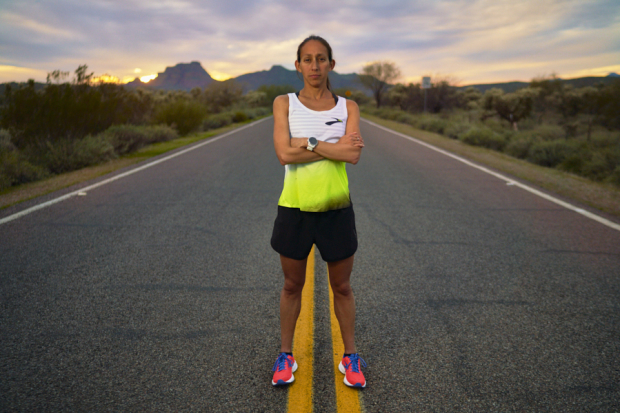
ST: You recently posted that you went a full month without running. Talk about that please, and also what you did during that time.
Des: Boston was originally rescheduled to September 14 so coming off of the Olympic Trials Marathon I took a very short break but planned on carrying fitness over and trying to build toward that. Once the September date was officially canceled it seemed unlikely that any fall marathons would happen this year. All along we had been planning on having a really busy year and going all in on races without really taking the long game into account. With the calendar cleared we decided to hit reset, preserve my legs, and really map out how I might extend my career for a few more years.
ST: Along those lines, when was the last time you had such a long break from competing?
Des: I took a fairly long break in 2017. It served me well and I have so many miles on my legs that returning to fitness didn’t take nearly as long as I expected.
ST: How long did it take?
Des: A month to six weeks building up full mileage. Once I started adding in quality things turned the corner fairly quickly, it probably took an additional 3-4 weeks, relative to a normal break, to get the workouts back to a really high quality.
ST: At the Olympic Marathon Trials you narrowly missed out and finished 4th that day and I believe you said “bummer” to one of the folks interviewing you. Once you were away from the media, what did you say then?
Des: I’m pretty genuine with the media so the sentiment when I was away from the media was the same. Sure, it was disappointing, but I felt like I managed everything thrown at me as best as possible and that’s pretty much all I can do.
ST: Now that you had some time to digest this result, how do you feel about it and where in your view did it go wrong?
Des: I think three women in front of me had a really great day. I don’t think anything went wrong; I just think they had a better day.
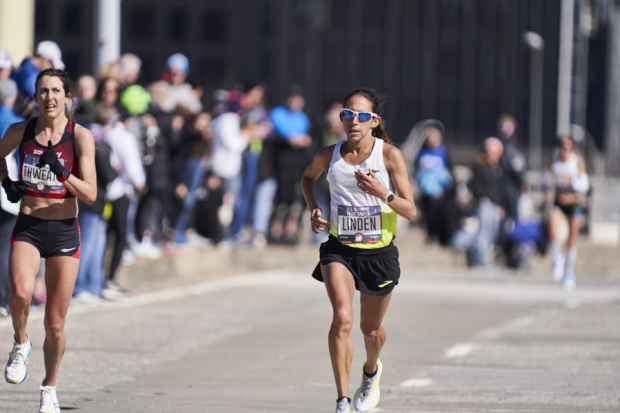
ST: Once COVID19 hit and with it the Tokyo Games were questioned, some folks suggested rerunning the Marathon Trials, something which would have been an opportunity for you. But you defended the 6 athletes who grabbed those coveted spots earlier. Can you explain?
Des: Nobody serious was hinting at, or considering rerunning the trials, it was really just internet chatter. I just wanted to make my position clear so that the noise would stop, or at least I would stop being looped into it. Our Trials selection process is brutally fair and everyone who was contending to make the team knew what day they had to be ready, those six proved the can be ready when it counts.
ST: In 2011 you came very close to grab the Boston title and in 2018 you finally did it. Where do these 2 races rank for you in terms of importance?
Des: They’re both pretty important and for totally different reasons. In 2011 I had my whole career in front of me and that race was super important for showing me what was possible. In 2018 it was years of hard work and close calls finally coming together, which is super valuable. Of course, I’ll always rank a win over a close call.
ST: Is there any other result or race experience that is very meaningful to you, and can you elaborate?
Des: I was pretty proud of my 2016 Olympic Marathon performance. Just to get back there after the disappointing 2012 experience was a big accomplishment. I thought I prepared myself perfectly, especially with having the 2012 experience weighing on my mind. I go to the start healthy and incredibly fit, and then I raced to my potential.
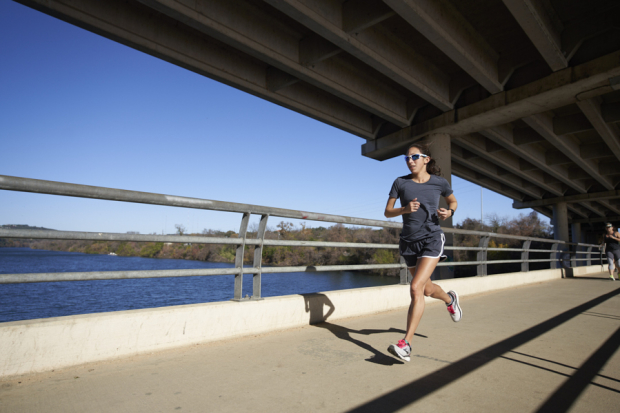
ST: Talking about the Olympics, how did the 2 venues in London and Rio find you and did you get to explore some too?
Des: Both were great destinations, but I didn’t spend too much time exploring either place. After my event in London I went to St Andrews in Scotland, with some friends, for a few days. After Rio we went to Bariloche, Argentina for a bit. It’s actually nice to get out of the crowded Olympic atmosphere for a bit.
ST: Do you also have a bucket list of events that for some reason you have not yet been able to experience?
Des: Not really in the shorter distances or the marathon, I’ve been at it long enough to check off most of the boxes that I wanted to. I am eyeing up some trail and ultra-races, such as Comrades and UTMB, but we’ll see if those happen.
ST: Do you enjoy trail running?
Des: I don’t spend too much time on the trails, to be honest, I think that’s why there’s so much intrigue.
ST: And why UTMB?
Des: Exploring Chamonix and the Mont-Blanc region on foot and in a race atmosphere just looks pretty incredible.
ST: With no races on the horizon in the near future, what does that mean in terms of your diet and certain sweet delights? Are you staying the course or are you slightly altering what you typically do or allow yourself?
Des: Yeah, I’m not big on restrictions or a rigid diet. My appetite and cravings tend to be driven by the volume and intensity of my training. Right now, both are pretty low, so I rarely find myself craving bad stuff just for filler.
ST: Most folks have hoped that by late summer we would be returning to some type of normal. Normal may actually now be a relative term and we would love to know what your current normal is like.
Des: I can’t complain about my current normal at all. Right now, my days are centered around running, sleeping, and eating. It’s like being a professional athlete but without the travel for sponsor obligations and races.
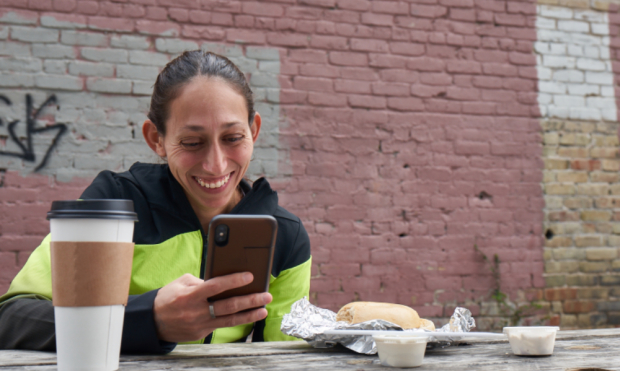
ST: Could you share what a week of training looks like for you?
Des: Right now, I’m just building volume so it’s just covering mileage each day. I’ll start adding in double days soon and gradually stretching out the long run. Since there aren’t serious race opportunities on the horizon, I’ll take my time adding back some intensity.
ST: How much do you train indoors versus outdoors?
Des: I try my best to do everything outdoors. Sometimes that means bundling up and heading out in sub-zero temps and forgetting about pace but just running by effort. The only thing, right now, that keeps me indoors is really bad ice that makes an injury risk.
ST: On Twitter you posted “Some days it just flows and I feel like I’m born to do this, other days it feels like I’m trudging through hell. Every day I make the choice to show up and see what I’ve got, and to try and be better.” How do you motivate yourself to show up?
Des: Set a goal that gets me excited, it won’t accomplish itself.
ST: Does it help to have a husband who also is an exceptional athlete?
Des: Yes. Having someone to share the work with is always a plus. We rarely have unmotivated or off days at the same time, so there’s at least one of us who’s motivated and ready to push the pace.
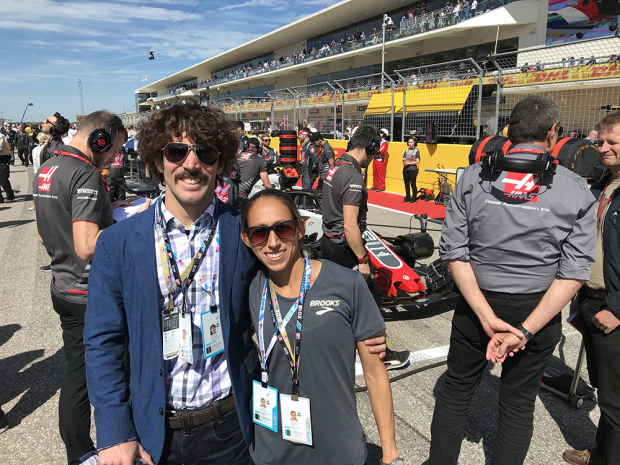
ST: What about other hobbies or interests? Or is there no time?
Des: Love traveling when the schedule permits. Always looking for another great book to read. I’m trying to get on my gravel bike more often but need to put in more work on this.
ST: And finally, if you had to give up either coffee, whiskey or music, which one could you live without?
Des: Whiskey, because there’s always beer.
You can follow Des Linden on Instagram via @des_linden
and on Twitter via @des_linden
All images except image 5 © Eric Wynn


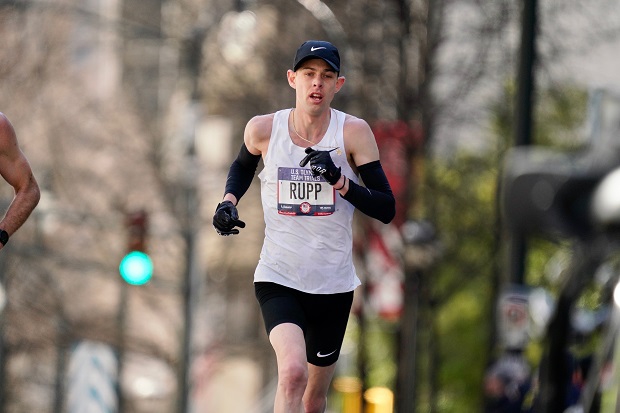
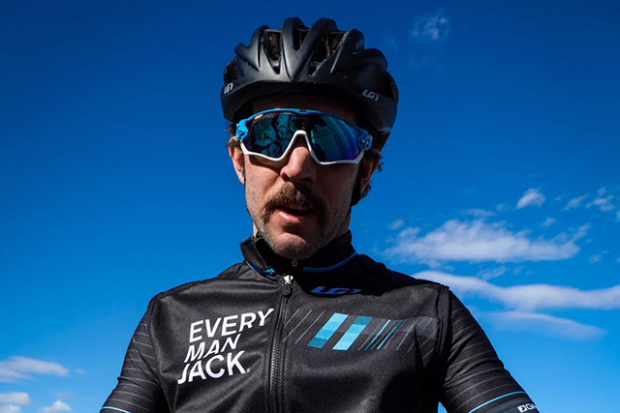
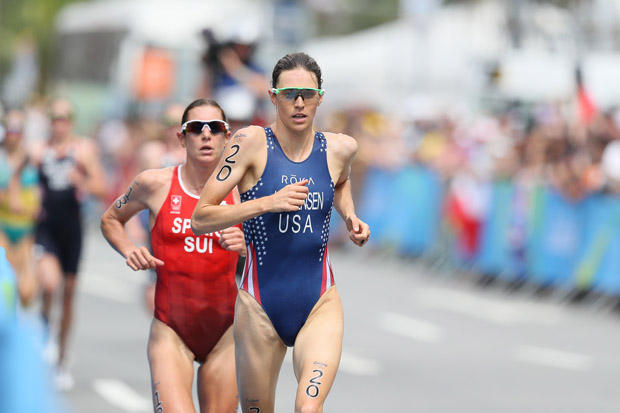
Start the discussion at slowtwitch.northend.network